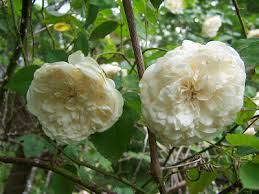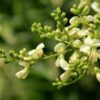Rosa gallica and Folk Remedies: Traditional Herbal Remedies Using Rosa gallica

Rosa gallica, known for its enchanting beauty and captivating fragrance, has been cherished not only for ornamental purposes but also for its medicinal properties for centuries. In traditional herbal medicine, Rosa gallica is revered for its therapeutic benefits and is used in a variety of folk remedies to address a wide range of health ailments. In this article, we will explore the rich history and diverse applications of Rosa gallica in folk remedies, shedding light on its traditional uses and healing properties.
#### Understanding the Medicinal Properties of Rosa gallica:
Rosa gallica, also known as the French rose or Provins rose, is a species of rose that has been cultivated since ancient times for its medicinal value. The petals, hips, leaves, and roots of Rosa gallica contain a wealth of bioactive compounds, including phenolic acids, flavonoids, essential oils, and vitamin C, which contribute to its therapeutic properties. Traditionally, Rosa gallica has been used to alleviate a wide range of health conditions, including digestive disorders, skin ailments, respiratory infections, and emotional imbalances.
#### Applications in Folk Remedies:
**1. Digestive Health:** Rosa gallica is commonly used in folk remedies to support digestive health and alleviate gastrointestinal discomfort. Infusions or decoctions made from Rosa gallica petals or hips are believed to have astringent, anti-inflammatory, and antispasmodic effects, which can help soothe upset stomach, reduce bloating, and relieve symptoms of indigestion, diarrhea, and gastritis.
**2. Skin Care:** Rosa gallica is prized for its skin-soothing and rejuvenating properties and is often used in folk remedies to promote healthy skin and treat various dermatological conditions. Rosewater, distilled from Rosa gallica petals, is renowned for its gentle astringent and toning properties, making it a popular natural remedy for cleansing, hydrating, and refreshing the skin. Rosehip oil, extracted from the fruit of Rosa gallica, is rich in vitamins, antioxidants, and essential fatty acids, which nourish and protect the skin, reduce inflammation, and enhance skin elasticity, making it an effective remedy for scars, stretch marks, wrinkles, and other signs of aging.
**3. Respiratory Health:** Rosa gallica has been used traditionally to support respiratory health and alleviate symptoms of respiratory infections, such as colds, coughs, and bronchitis. Inhalation of steam infused with Rosa gallica petals or essential oil is believed to help clear congestion, reduce inflammation, and soothe irritated mucous membranes, making it easier to breathe and promoting respiratory comfort and well-being.
**4. Emotional Well-being:** Rosa gallica is prized for its uplifting and calming aroma, which has a positive effect on emotional well-being and mental health. Inhalation of the fragrance of Rosa gallica petals or essential oil is believed to reduce stress, anxiety, and tension, promote relaxation, and uplift the spirits, creating a sense of harmony and balance in body, mind, and spirit.
#### Preparation and Administration:
**1. Infusions and Decoctions:** To prepare an infusion or decoction using Rosa gallica petals or hips, simply steep a handful of fresh or dried petals or hips in hot water for 10-15 minutes, then strain and drink as a tea. Infusions can be consumed hot or cold and may be sweetened with honey or flavored with lemon or herbs for added taste and therapeutic benefit.
**2. Topical Applications:** For topical use, Rosa gallica petals, rosewater, or rosehip oil can be applied directly to the skin as a facial toner, cleanser, moisturizer, or massage oil. Simply dilute rosewater or rosehip oil with a carrier oil, such as jojoba or almond oil, and apply to the skin as needed to nourish, hydrate, and rejuvenate the complexion.
**3. Inhalation:** To benefit from the aromatic properties of Rosa gallica, add a few drops of rose essential oil to a bowl of hot water and inhale the steam, covering your head with a towel to create a tent. Breathe deeply and slowly for several minutes to enjoy the calming and uplifting effects of the rose aroma.
#### Safety and Precautions:
While Rosa gallica is generally considered safe for most people when used in moderation, it’s essential to exercise caution and seek professional guidance before using Rosa gallica or any herbal remedy, especially if you are pregnant, nursing, or have any underlying health conditions or allergies. Always perform a patch test before using Rosa gallica topically to check for sensitivity or allergic reactions, and discontinue use if any adverse effects occur.
#### Conclusion:
Rosa gallica has a long history of use in folk remedies and traditional herbal medicine, where it is valued for its versatile applications and therapeutic benefits. Whether used to support digestive health, promote radiant skin, alleviate respiratory discomfort, or uplift the spirits, Rosa gallica continues to be cherished as a natural remedy for enhancing health and well-being. By exploring the traditional uses and healing properties of Rosa gallica, we can appreciate the wisdom of our ancestors and harness the power of nature to nurture and restore balance in body, mind, and spirit.
### Rosa gallica and Folk Remedies: Traditional Herbal Remedies Using Rosa gallica (Continued)
In the preceding section, we explored the diverse applications of Rosa gallica in folk remedies, focusing on its traditional uses to address digestive health, skin care, respiratory issues, and emotional well-being. Now, let’s delve deeper into the specific folk remedies that incorporate Rosa gallica and examine their preparation, administration, and potential benefits.
#### Specific Folk Remedies Using Rosa gallica:
**1. Rose Infusion for Digestive Health:**
– **Preparation:** To make a rose infusion, steep a handful of fresh or dried Rosa gallica petals in hot water for 10-15 minutes.
– **Administration:** Drink the infusion as a tea, preferably before or after meals, to soothe digestive discomfort, alleviate indigestion, and promote overall digestive health.
– **Benefits:** The astringent and anti-inflammatory properties of Rosa gallica help to calm the digestive system, reduce bloating and gas, and relieve symptoms of gastrointestinal upset.
**2. Rosewater Toner for Skin Care:**
– **Preparation:** Rosewater can be made by steeping Rosa gallica petals in distilled water and straining the liquid.
– **Administration:** Apply rosewater to the skin as a toner using a cotton pad or spray bottle. Use it daily to cleanse, hydrate, and refresh the skin, or as a natural remedy for acne, inflammation, and irritation.
– **Benefits:** Rosewater helps to balance the skin’s pH, tighten pores, and soothe irritation, making it an ideal toner for all skin types, including sensitive and acne-prone skin.
**3. Rosehip Oil for Scar Healing:**
– **Preparation:** Rosehip oil is extracted from the fruit of Rosa gallica and can be used topically on the skin.
– **Administration:** Apply rosehip oil directly to scars, stretch marks, or other areas of damaged skin to promote healing and reduce the appearance of scars and discoloration.
– **Benefits:** Rosehip oil is rich in vitamins A, C, and E, antioxidants, and essential fatty acids, which nourish the skin, boost collagen production, and promote tissue regeneration, making it an effective remedy for scar healing and skin repair.
**4. Rose Inhalation for Respiratory Relief:**
– **Preparation:** Add a few drops of rose essential oil to a bowl of hot water and inhale the steam.
– **Administration:** Inhale the aromatic steam for several minutes to clear congestion, ease breathing, and soothe respiratory discomfort associated with colds, coughs, and bronchitis.
– **Benefits:** The soothing aroma of Rosa gallica helps to open up the airways, reduce inflammation, and promote relaxation, making it easier to breathe and providing relief from respiratory symptoms.
**5. Rose Petal Bath for Emotional Well-being:**
– **Preparation:** Add a handful of Rosa gallica petals to a warm bath and allow them to infuse the water with their fragrance and therapeutic properties.
– **Administration:** Soak in the rose petal bath for 15-20 minutes to relax the mind, uplift the spirits, and promote emotional well-being.
– **Benefits:** The aromatic scent of Rosa gallica petals has a calming and uplifting effect on the senses, helping to reduce stress, anxiety, and tension, and promote a sense of peace and tranquility.
#### Cultural Significance and Traditional Knowledge:
Rosa gallica has been revered for centuries for its medicinal properties and cultural significance, and its use in folk remedies reflects the deep connection between humans and nature. The traditional knowledge surrounding Rosa gallica and its therapeutic uses has been passed down through generations, preserved in folk traditions, herbal lore, and oral histories. By honoring and preserving this traditional knowledge, we can continue to harness the healing power of Rosa gallica and appreciate its role in promoting health and well-being.
#### Conclusion:
Rosa gallica is a versatile and valued ingredient in folk remedies, offering a natural and holistic approach to health and healing. Whether used to support digestive health, nourish the skin, ease respiratory discomfort, or promote emotional well-being, Rosa gallica continues to be cherished as a timeless remedy for enhancing health and vitality. By exploring the specific folk remedies that incorporate Rosa gallica and understanding their preparation, administration, and potential benefits, we can tap into the wisdom of traditional herbal medicine and embrace the healing power of nature.


